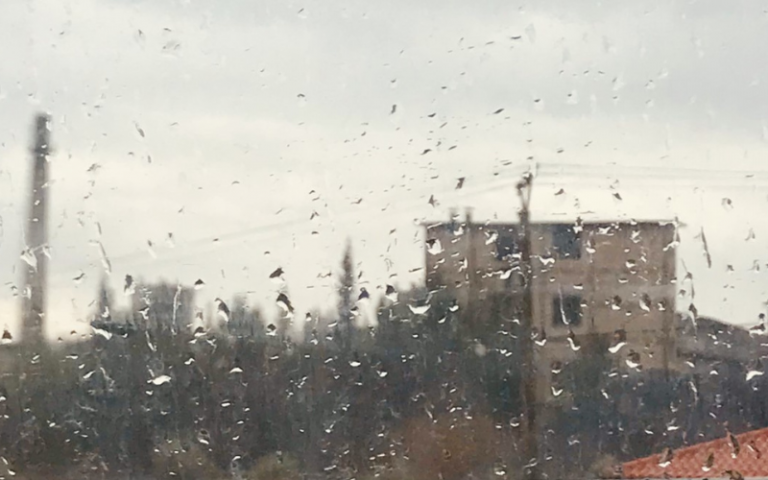Ecologies Of Decay: Modern Ruination in The Global (Post)Socialist Peripheries
16 June 2022–17 June 2022, 9:00 am–6:00 pm

The conference is organised by Dimitra Gkitsa (Alexander Nash Fellow, SSEES). It has been made possible through the generous support of UCL’s IAS Octagon Small Grants Fund and the FRINGE Centre for the Study of Social and Cultural Complexity (SSEES).
This event is free.
Event Information
Open to
- All
Availability
- Yes
Cost
- Free
Organiser
-
SSEES
How was the socialist modernity and its ideology materialised in the global rural and urban territories? What are the social and political transformations that have occurred in the post-socialist villages and towns after socialist projects? In what ways can the material and visual ruination of rural spaces capture the collective memories of local communities?
Reflecting on the above questions, this conference takes ruination both as a metaphor and as an actual reality to theorise the social and political transformations that have occurred in the global peripheries at the aftermath of socialist modernity. Ruins are concrete spaces of abandonment, forgotten material remnants, decayed sites, and objects from another past. Here, abandonment is clearly not something momentary that occurred in a specific temporal framework but rather a continuing process—a ruin always in the making which can offer a framework to understand the very process of decay. Ruins can also be a critical position and standpoint to capture the functioning and withering of discourses and experiences located on the margins and the back alleys of mainstream modernity.
- Conference programme
THURSDAY, 16 JUNE
09.00 – 09.30 Opening remarks by Diane P. Koenker (UCL SSEES Director) and Dimitra Gkitsa (Alexander Nash Fellow, SSEES)
09.30 – 11.30 Session 1 – Ghost peripheries and abandoned towns
Chair: Nicholas Lackenby
Kathleen Smith (Georgetown University), Paradise Lost? Ruination, spatial secession and gentrification in the Soviet Writers’ Town
Adriana Stan (Sextil Puscariu Institute of Linguistics and Literary History, Cluj-Napoca, Romanian Academy), Ghost villages and ghosts of agrarian past in post-communist Romanian literature
Maria Rogucka (Jagiellonian University), Might things have been different? Polish abandoned towns: when places become non-places
Nadia Vikulina (Harvard University), Contemplative sign for the potential demise: A look at the abandoned Soviet Garden Cities
11.30 – 13.30 Session 2 – Ruins as sites of collective memories
Chair: Henrike Neuhaus
Caterina Preda (University of Bucharest), Statuary politics and the ambivalent socialist heritage in Romania and Bulgaria: Replacing socialist heroes with anti-communist victims
Maria Alexandrescu (The University of Sheffield), Bucharest’s maidans, ecological memories
Balázs Polito and António Carvalho (Politecnino di Milano), Demolition as a brutal intervention over the past: the former Electric Power Distributor Station by Csaba Virág in the historical Buda Castle district, Budapest
Kateřina Štroblová (University of Ostrava), Architecture in ruins: Decay as symbol
13.30 – 14.30 Lunch Break
14.30 – 16.30 Session 3 – Life after the ruins: Precarity, labour, work infrastructures
Chair: Joni Zhu
Anna Shandrina (University College London), The story of an old push-button mobile phone: the affective value of the ‘unhappy’ object and class anxiety in Belarus
Margaret Pulk (Ghent University), Spaces of precarity: the transformation of work within the logistics infrastructures in the peripheries of Leipzig and Poznan
Zarina Adambussinova (American University of Central Asia), Debt-based practices as survival strategy in the post-socialist monogorods in Kazakhstan and Kyrgyzstan
André Thiemann (Czech Academy of Sciences), Infrastructures of value: Post-socialist infrastructural involution and the production of Serbian raspberries for global markets
16.30 – 17.00 Coffee
17.00 – 18.00 Keynote
Dace Dzenovska (University of Oxford), Neither Ruins, Nor Rubble: The Predicament of Soviet Material Remains in Latvia
18.00 – 19.00 Reception
FRIDAY, 17 JUNE
09.30 – 11.30 Session 4 – (Re)solving difficult pasts
Chair: Maya Nguyen
Katerina Genidogan (Leuphana University Lüneburg), Ruination through (socialist) modernization dreams and inflected racialization: Collapsing histories in Ghana’s Akosombo Dam
Elisa Tamburo (King’s College London), States of Abandonment: Decay, Relocation, and Heritage-Making in Urban Taiwan
Maria Gunko (University of Oxford), Ruins of the (Post)Soviet Arctic: Coping with and commemorating abandoned sites
Elena Liber (Goldsmiths, University of London), Destruction and decay: Navigating historical silences in L’viv, Ukraine
11.30 – 12.00 Coffee
12.00 – 13.00 Keynote
Deana Jovanović (Utrecht University), Post-socialist ruins as stages for futural promises: Ethnographic insights from an industrial town in Serbia
13.00 – 14.30 Lunch Break
14.30 – 16.30 Session 5 – Working with the ruins in the contemporary condition (online)
Chair: Dimitra Gkitsa
Driant Zeneli (artist, Albanian Pavilion 2019 Venice Biennale), Beneath a surface there’s just another surface
Maria Kapajeva (artist), Dream is wonderful, Yet unclear
Dominique Petit-Frère (Limbo Accra), Operating from point Limbo
Miloš Kosec (Museum of Architecture and Design, Ljubljana), Nonument Group: Interventions in contested sites.
16.30 – 17.00 Break
17.00 – 18.00 Keynote
Larisa Kurtović (University of Ottawa), Ruins worth fighting for, or on the possibility of life in Bosnian postindustrial hinterlands
 Close
Close

